Treatment Resources |
Are you an ASSBI Member?Don't forget all ASSBI and INS members receive a 10% discount on all purchases. Login to the site before going to the Online Store FREE postage and handling within Australia |
Mental Health |
Description: The CBT-ABI manual is an essential, evidence-based, clinically useful treatment guide for clinicians working with individuals experiencing depression and anxiety after brain injury. The manual contains richly described, user-friendly instructions and tips for therapists including links to helpful demonstration videos, as well as numerous handouts for clients with TBI. |
Cognitive Behavioural Therapy (CBT) especially designed for people with acquired brain injuries. |
Psychosocial |
Telehealth Making Sense of Brain Tumour (TeleMAST) Manual: A practical guide for therapists. Use Tele-MAST therapist manual to provide individualised psychosocial support for people with brain tumour and their families. Description: Delivery of the Making Sense of Brain Tumour (MAST) program and its telehealth adaptation (Tele-MAST) is guided by this therapist manual, which supports health professionals to deliver person-centred and goal directed counselling and rehabilitation to adults with brain tumour and their family members. The therapist manual is intended for use by professionals with qualifications in psychology, social work, and counselling. |
This therapy manual details activities of daily living retraining for individuals in post-traumatic amnesia (PTA) following brain injury. Description: This therapy manual details skills (activities of daily living) retraining for individuals in post-traumatic amnesia (PTA) following brain injury. This intervention guide is based on an evidence-based approach. The manual provides background information regarding PTA, an outline of the evidence underpinning the approach, and guiding principles for intervention delivery, particularly procedural and errorless learning. |
Use the PEPA to help your client with brain injury increase their participation in meaningful activities Description: The Programme for Engagement, Participation and Activities (PEPA) is an evidence-based, programmatic approach to help clients with brain injury increase their engagement and participation in activities that they find meaningful. The PEPA is suitable to be used by any qualified and experienced health professional (e.g., neuropsychologist, occupational therapist, rehabilitation counsellor) with knowledge about brain injury. It is designed specifically for people with brain injury who have not been able to return to paid employment and who wish to increase their level of everyday activity, including recreation and social activity. |
Memory |
Errorless learning in dementia – a practical manual for setting up an everyday skill training Errorless learning in dementia is a protocol for setting up a skill training aimed at teaching individuals with dementia everyday activities. Description: This manual provides practical information on how to teach people with dementia everyday skills, with an emphasis on error reduction during the learning process. Errorless learning has been successfully used to teach people with dementia everyday tasks, such as chores, leisure activities and using electronic devices, and has been implemented in care facilities for people with dementia. |
Use this memory training program to guide small group interventions for patients with epilepsy, stroke and other acquired brain injuries. Description: Making the Most of Your Memory is an intervention manual for clinicians to guide delivery of a small group program, which aims to improve understanding of memory function and practice everyday memory skills. The kit includes a manual describing the 6-week memory training program, handouts and digital facilitator slide templates. This memory program has been designed to be delivered by neuropsychologists and other clinicians involved in the rehabilitation of cognitive problems following acquired brain injury or in the context of epilepsy. |
Social Cognition |
Improving First Impressions: social skills training for people with cognitive impairment A step by step manual for remediating social skills Description: ‘Improving First Impressions’ is an empirically tested manualized program for social skills training. This program is based upon well-established behavioural principle for reinforcing positive social skills and is designed specifically for people who have poor new learning and executive control difficulties. The manual provides step-by-step instructions and is supplemented with detailed handouts to accompany each session. The program is designed for training social skills in two or more clients at a time. Click Here to see webinar about this product. |
Reading a smile and other great expressions: a treatment for emotion perception. Remediating emotion recognition is now possible with this structured program. Description: Reading a smile (and other great expressions) is an empirically tested program designed to rehabilitate emotion recognition in people with acquired brain injuries or any other condition that may impair emotion perception. The structured manual details 13 separate sessions of 1-2 hours in length that are hierarchically organized. The manual provides step-by-step instructions and is supplemented with colourful cards, board games and videos. |
Communication |
A social communication resource to develop pragmatic communication skills Description: Support your clients with this practical resource to guide the development of social communication skills for adolescents and adults. Confident use of communication is essential for success in relationships with peers, family and at work. Information, hints and practical exercises for capacity building in five key communication skills; listening, talking, greetings and partings, manners and extending social networks are provided. These exercises will build confidence across a hierarchy of communication situations that are meaningful to the individual client. Click Here to see webinar about this product. |
Treating cognitive-communication disorders made easy with the structured IMPACT program. Description: IMPACT Intervention for Metacognition and Social Participation: an Acquired Cognitive-Communication Disorder Treatment is an empirically tested program designed to rehabilitate cognitive-communication in people with traumatic brain injuries or any other condition that may impair cognitive-communication. The structured manual details 12 separate individual and group sessions of 1 hour in length that are sequentially organized. The step-by-step manual provides detailed instructions for each session and is supplemented with templates and handouts for easy treatment administration. |
TBI Express: A social communication training manual for people with traumatic brain injury (TBI) and their communication partners. Use TBI Express to help improve communication and conversation for people with traumatic brain injury and their family members or carers. Description: TBI Express is a communication training program for people with traumatic brain injury, their families, friends and carers. TBI Express can support families and friends to find the best ways to help communication after brain injury. The TBI Express kit includes a manual and DVD resource for delivering the program to either a group including both people with TBI and family members / carers, or a group of people with TBI only. |
Use TBIconneCT to help improve communication and conversation for people with traumatic brain injury and their family members or carers. Description: TBIconneCT is a program designed to help people with traumatic brain injury and their family members, friends or carers improve their communication and have better conversations together. The program consists of ten sessions that a person with TBI and one of their key communication partners is guided through by a speech pathologist. The program has been tested for delivery both in-person and via videoconferencing. |

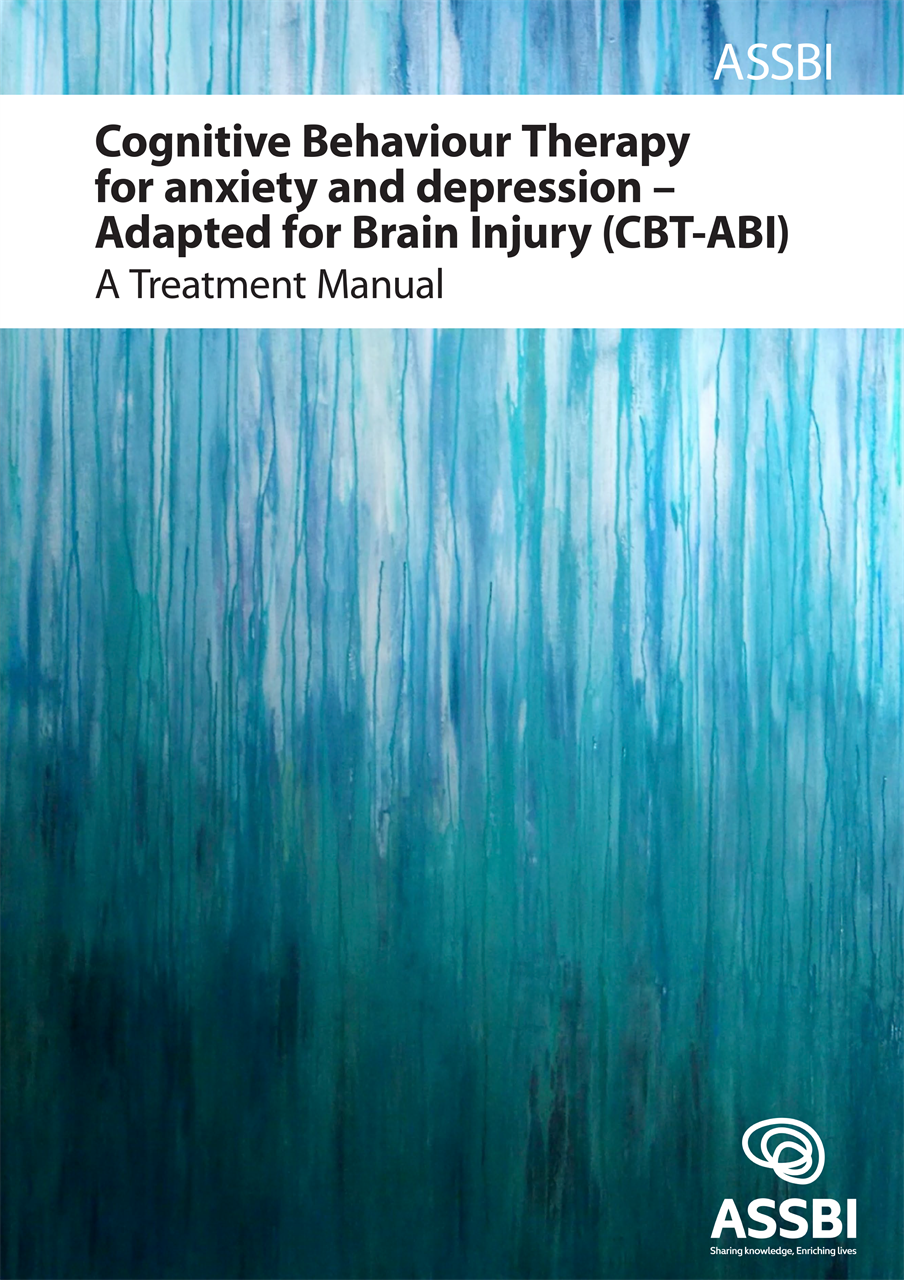 Cognitive Behaviour Therapy for Anxiety and Depression - Adapted for Brain Injury (CBT-ABI): A Treatment Manual
Cognitive Behaviour Therapy for Anxiety and Depression - Adapted for Brain Injury (CBT-ABI): A Treatment Manual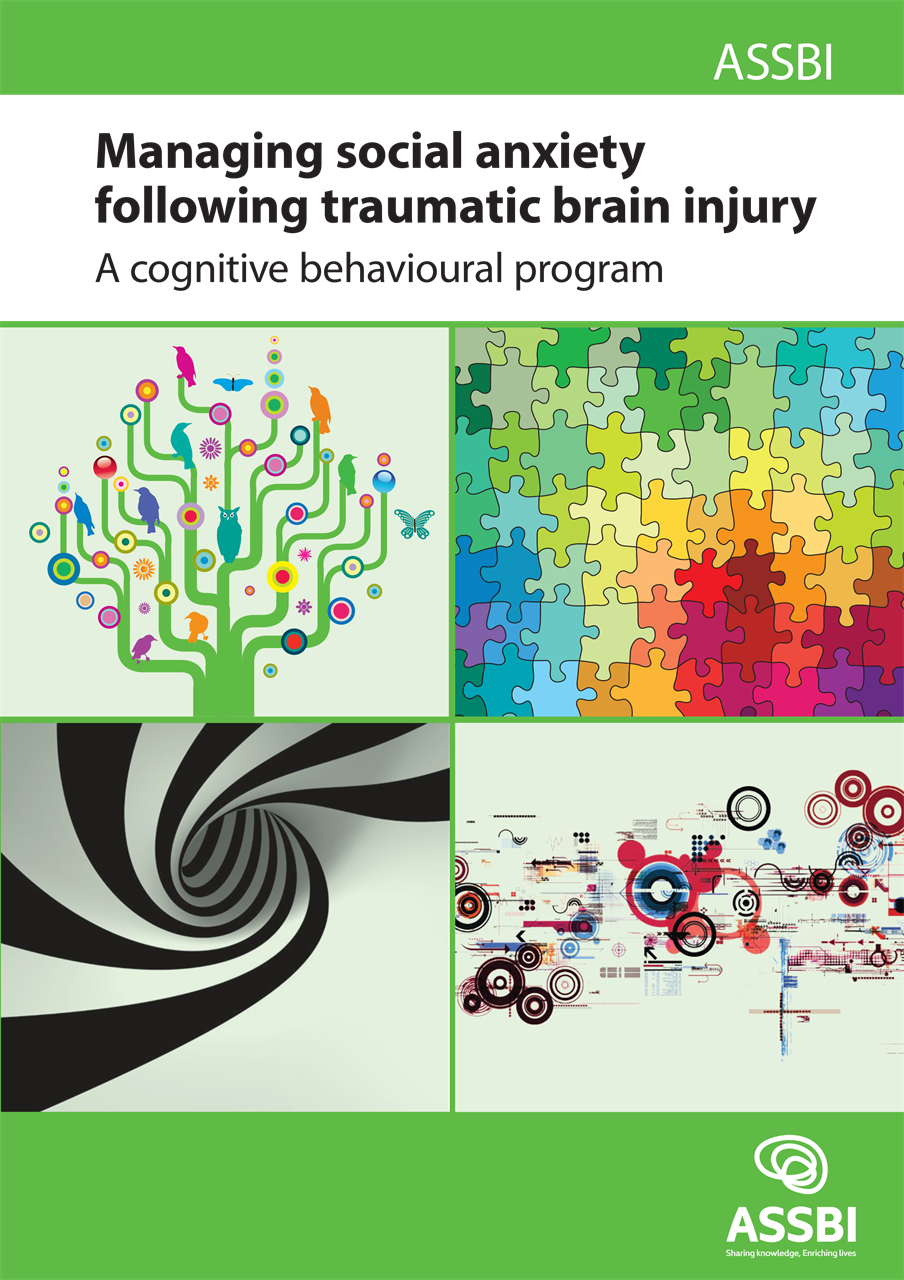 Managing Social Anxiety following Traumatic Brain Injury: A cognitive behavioural program
Managing Social Anxiety following Traumatic Brain Injury: A cognitive behavioural program Telehealth Making Sense of Brain Tumour
Telehealth Making Sense of Brain Tumour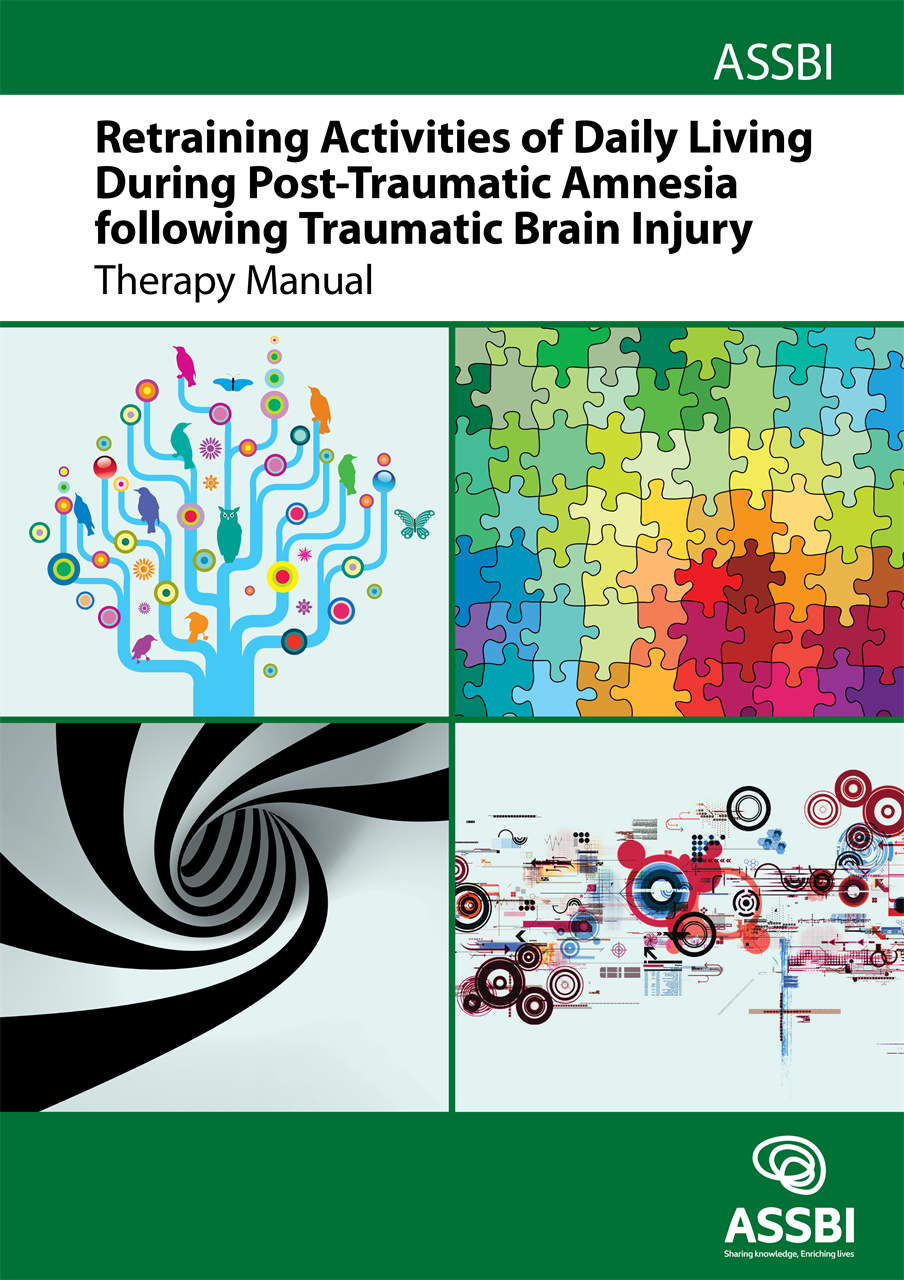 Retraining Activities of Daily Living During Post-Traumatic Amnesia following Traumatic Brain Injury: Therapy Manual
Retraining Activities of Daily Living During Post-Traumatic Amnesia following Traumatic Brain Injury: Therapy Manual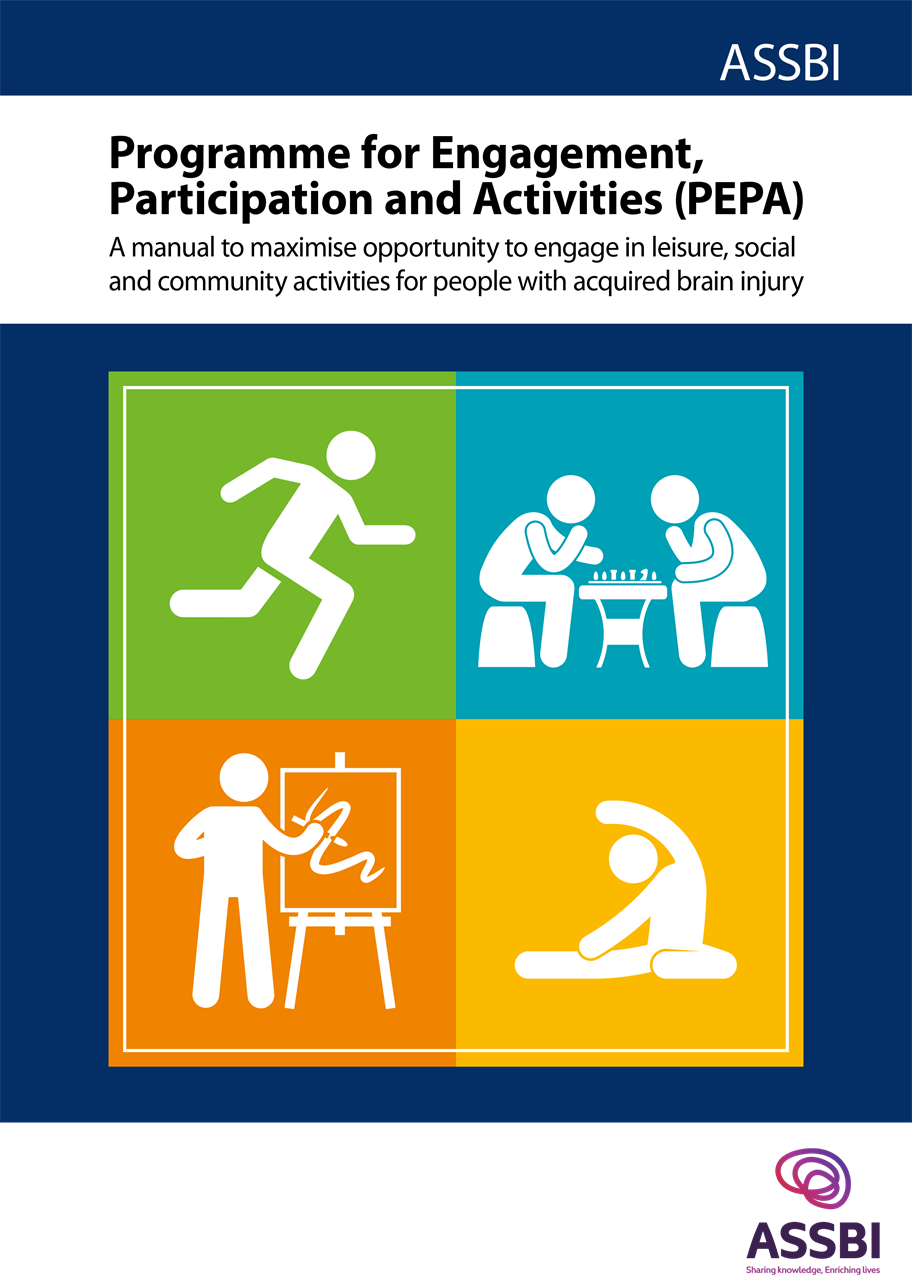 The Programme for Engagement, Participation and Activities (PEPA)
The Programme for Engagement, Participation and Activities (PEPA)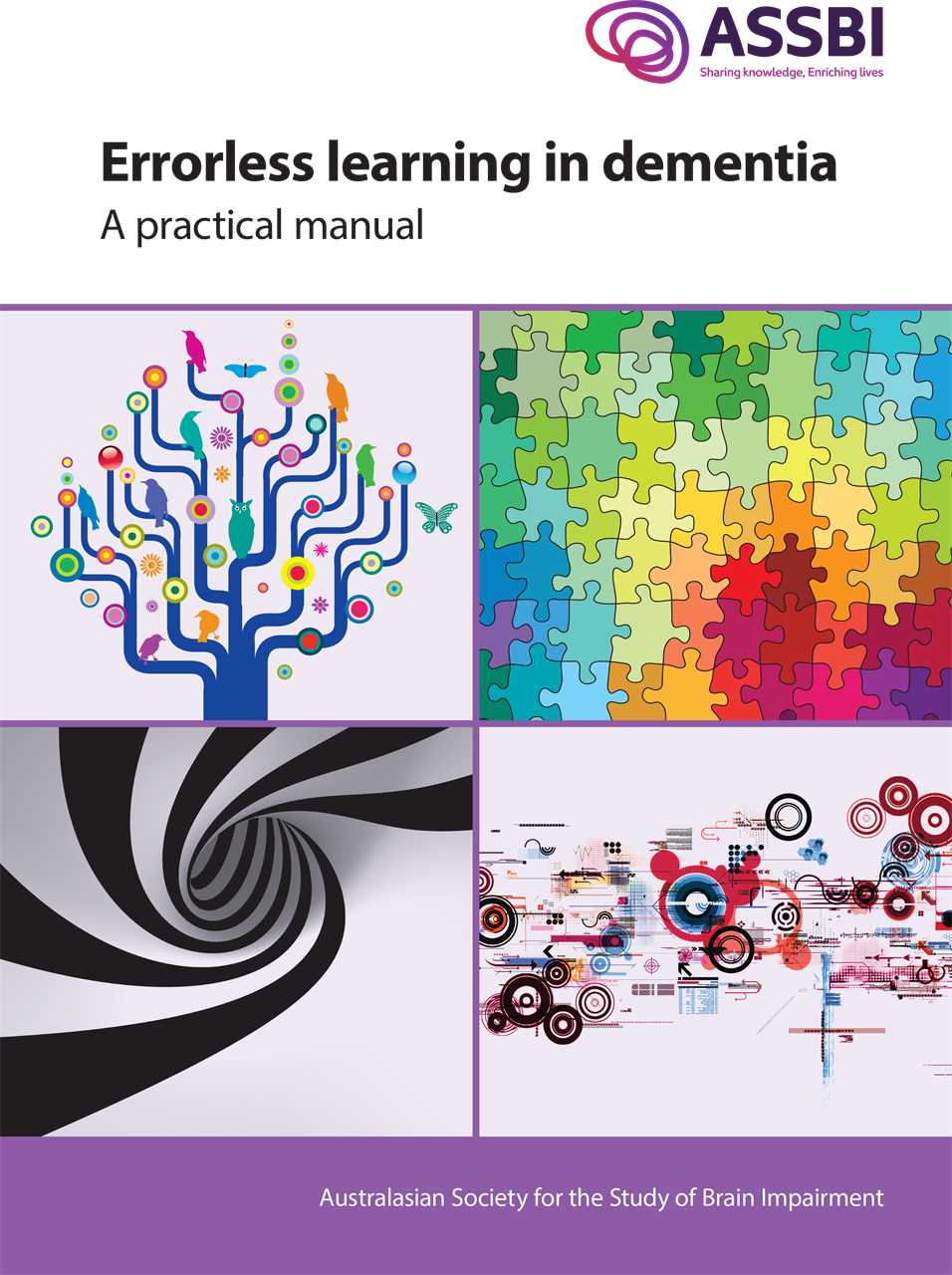 Errorless Learning in Dementia: A Practical Manual
Errorless Learning in Dementia: A Practical Manual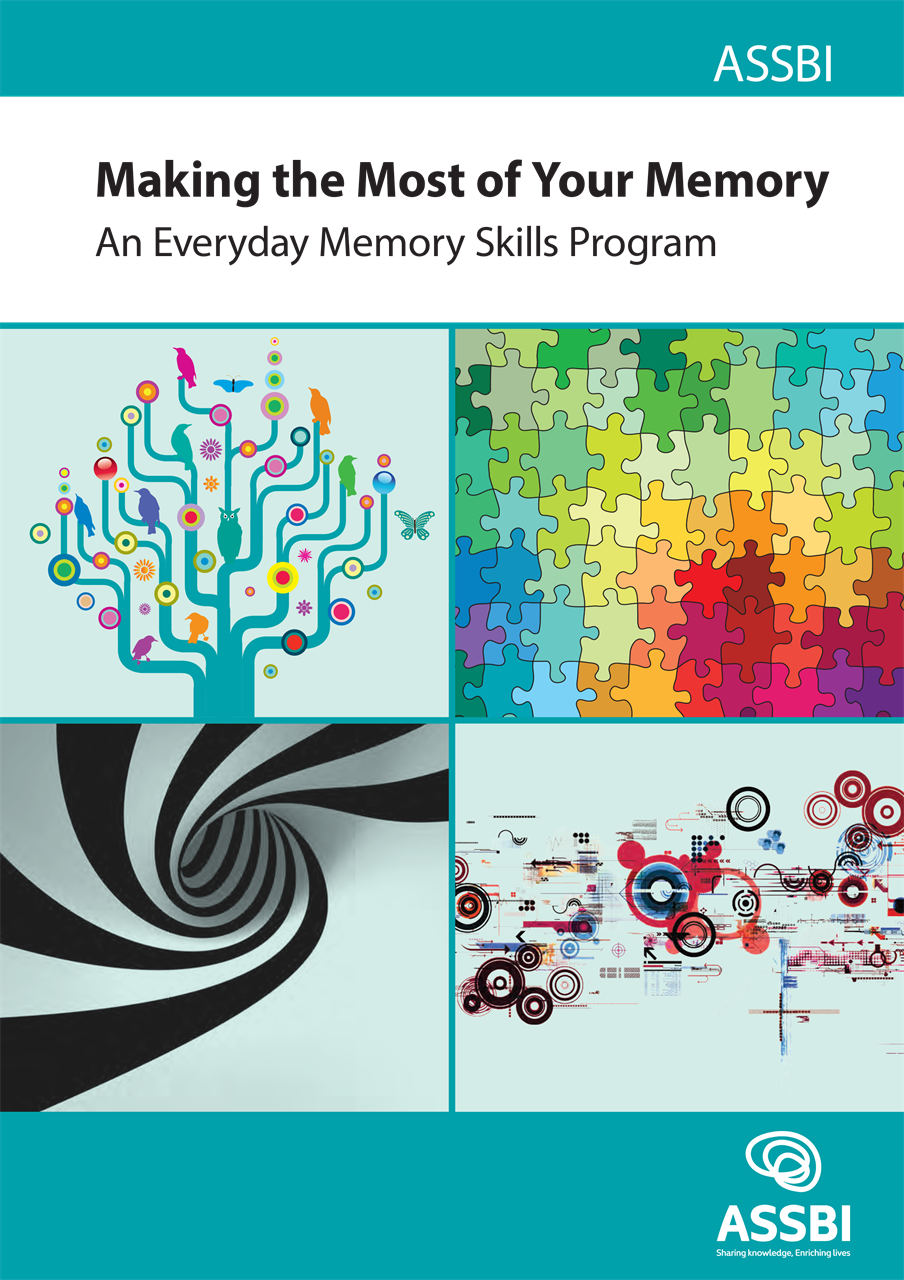 Making the Most of Your Memory: An Everyday Memory Skills Program
Making the Most of Your Memory: An Everyday Memory Skills Program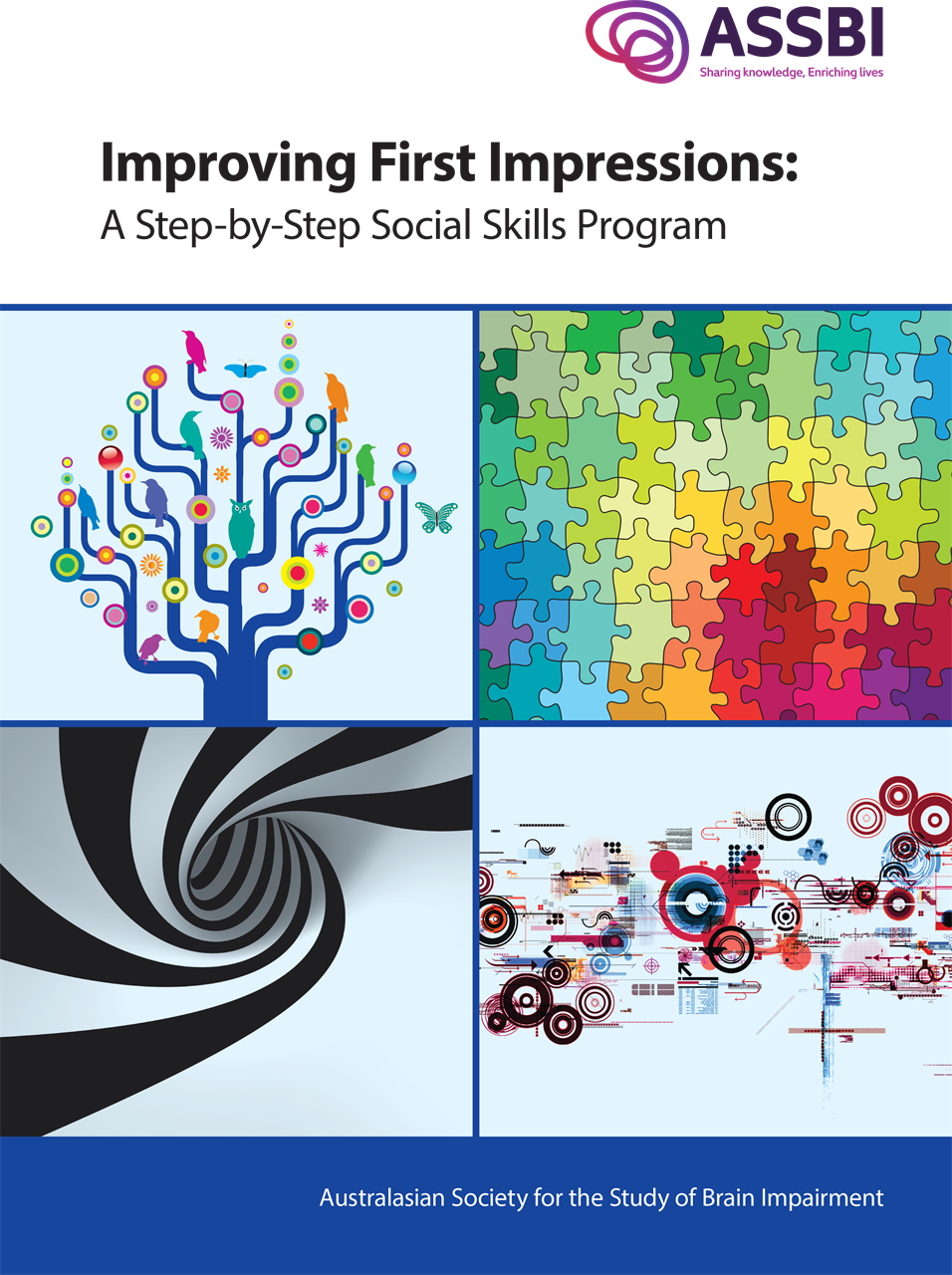 Improving First Impressions: A Step-by-Step Social Skills Program
Improving First Impressions: A Step-by-Step Social Skills Program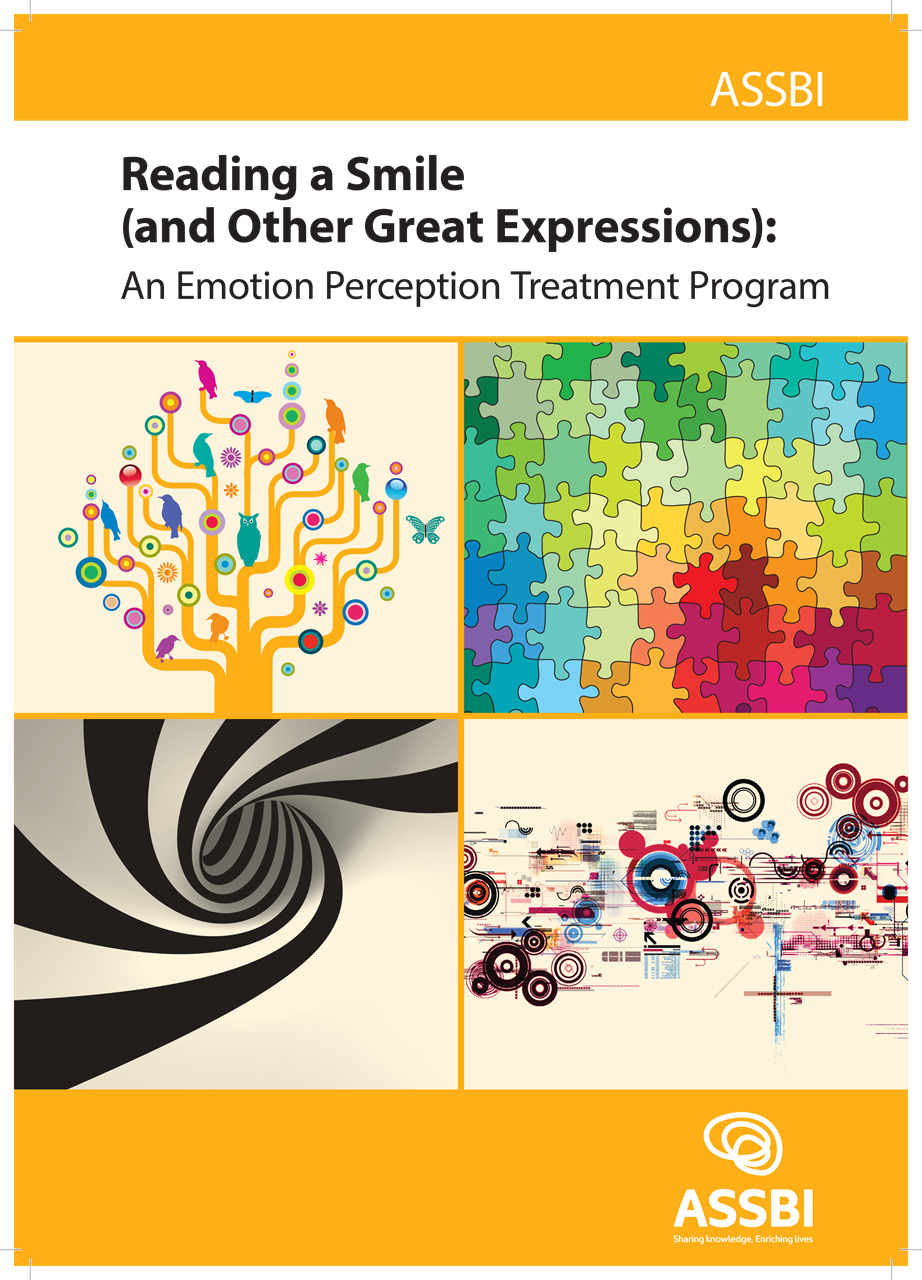 Reading a Smile (and Other Great Expressions): An Emotion Perception Treatment Program
Reading a Smile (and Other Great Expressions): An Emotion Perception Treatment Program
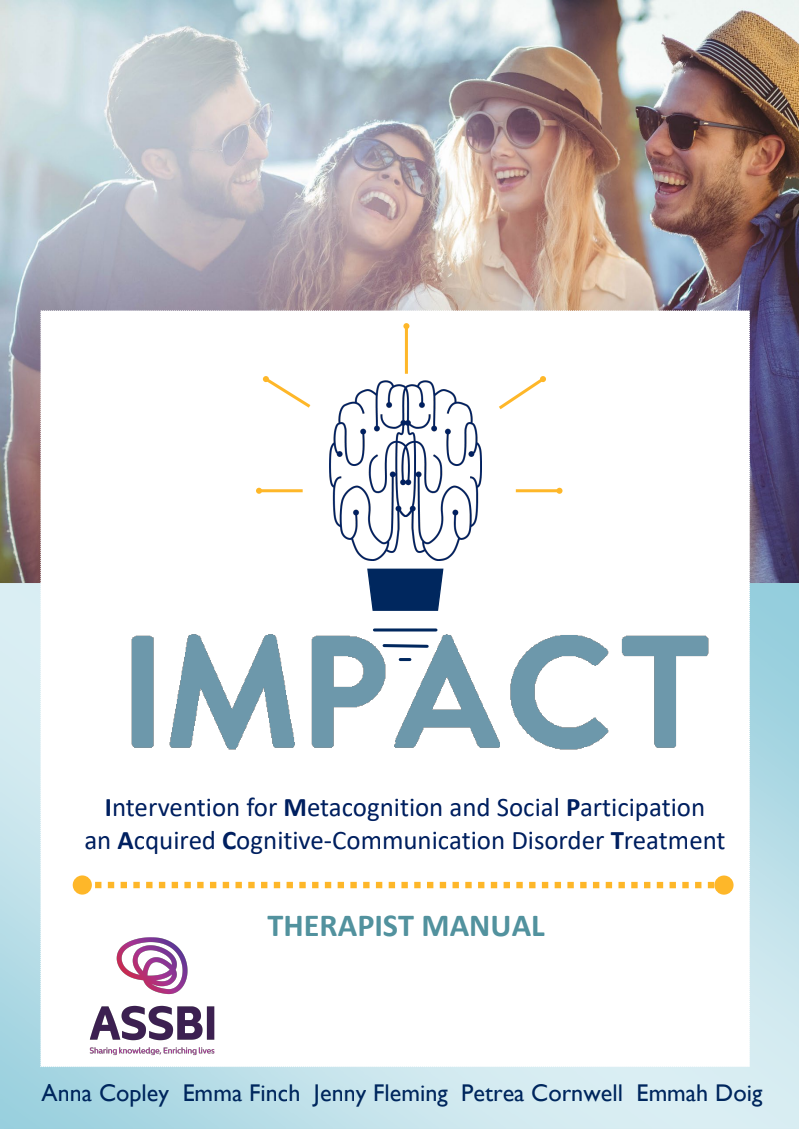 IMPACT - Intervention for Metacognition and Social Participation: An Acquired Cognitive-Communication Disorder Treatment
IMPACT - Intervention for Metacognition and Social Participation: An Acquired Cognitive-Communication Disorder Treatment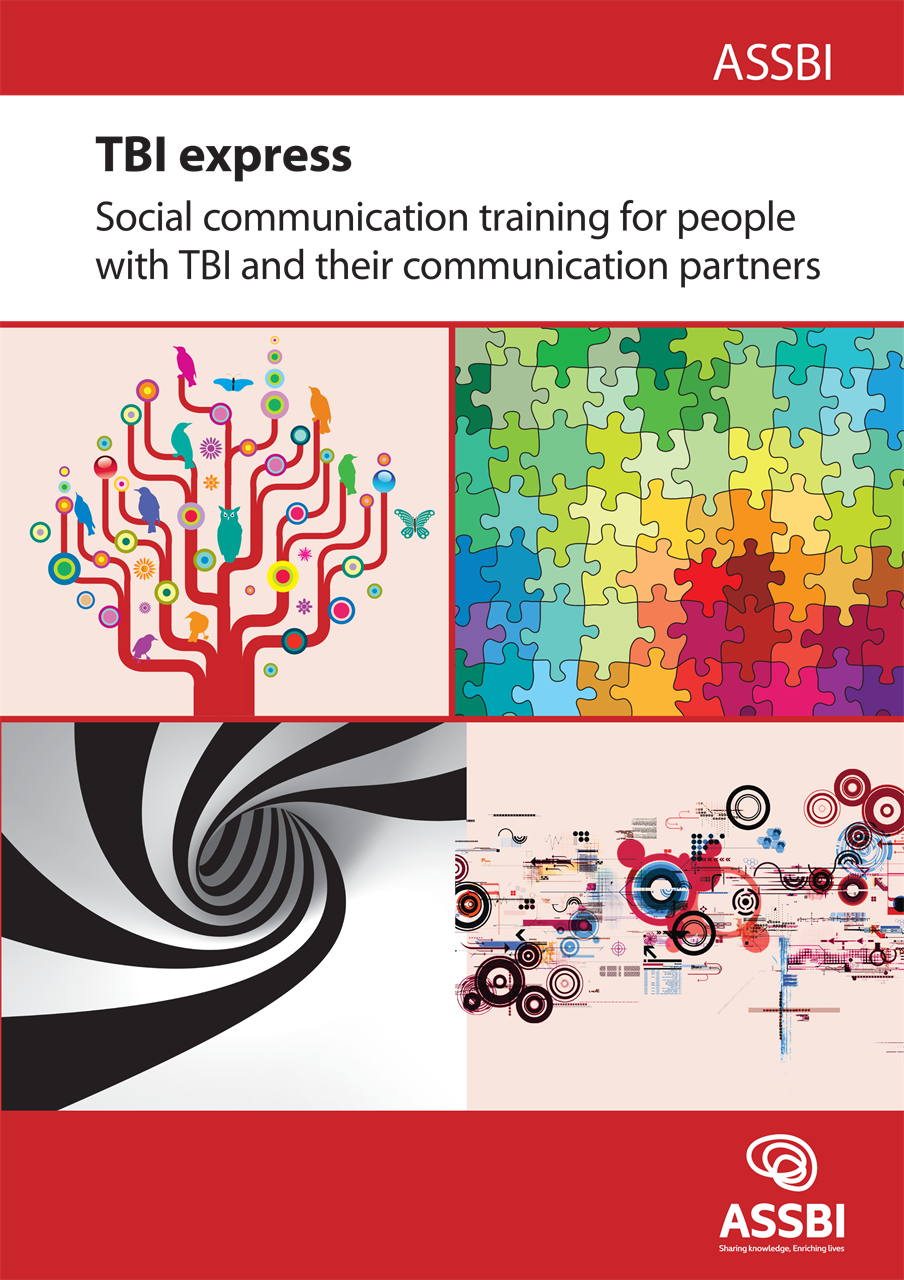 TBI Express: Social communication training for people with TBI and their communication partners
TBI Express: Social communication training for people with TBI and their communication partners

